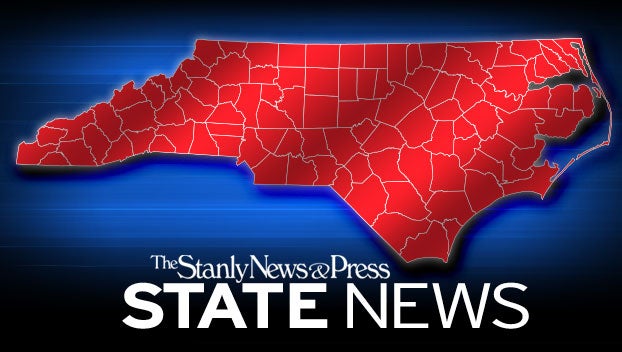STATE: Elon Poll finds North Carolina residents increasingly favor getting COVID-19 vaccine
Published 9:40 am Tuesday, February 9, 2021
|
Getting your Trinity Audio player ready...
|
The Elon University Poll has found that a growing number of North Carolina adults are in favor of getting the COVID-19 vaccine, with 12 percent saying they have already received the vaccine and another 45 percent saying they will get the shots once they are available to them. That’s an increase from 33 percent in favor of the vaccine in October and 40.5 percent in December, with 67 percent of N.C. adults now saying they have received the vaccine or will take it once it’s available.
The survey of 1,455 N.C. adult residents conducted Jan. 29-31 found that 20 percent say they will not get the vaccine and 24 percent say they are not sure whether they will. The percent of respondents saying they will not get the vaccine has remained relatively level, moving from 25 percent in October to 20.5 percent in December.
“Hesitancy about COVID-19 vaccines has declined substantially among North Carolina residents since we started tracking vaccine intentions last October,” said Jason Husser, director of the Elon Poll and associate professor of political science. “As expected, many people who were unsure about the vaccine have now taken at least one dose or plan to take it when available. However, we did not find evidence that many in the ‘no’ camp are changing their minds, and the vast majority of the state remains at least a little worried about adverse side effects.”
Nearly two-thirds of residents say they are “very worried” or “somewhat worried” about side effects of a COVID-19 vaccine, while 23 percent are “only a little worried” and 15 percent are “not worried at all,” the Elon Poll has found.
Among those who have received the vaccine, 46 percent say the experience was “very easy” and another 25 percent say it was “somewhat easy.” Getting to that point in the process has proved challenging, though. Among those who have unsuccessfully sought to get the vaccine, 63 percent said appointments were not available or weren’t available at a nearby location, 20 percent said they discovered they were not eligible and 17 percent listed other reasons they were not able to secure an appointment.
The survey found low approval ratings for how the state and federal governments have handled vaccine distribution, though a significant portion of respondents said they didn’t know enough about those efforts to have an opinion. Thirty-seven percent of respondents said they approved of how North Carolina has handled distribution while 30 percent said they approved of how the federal government has handled distribution. Twenty-seven percent disapproved of North Carolina’s vaccination distribution efforts and 43 percent disapproved of the federal government’s efforts. Thirty-six percent said they didn’t know enough about what the state was doing to say, while 28 percent said they didn’t know enough about what the federal government was doing to have an opinion.
“Many North Carolinians are displeased about the federal government’s handling of vaccine distribution,” Husser said. “Meanwhile, the most common reason people report being unsuccessful in getting a vaccine is the lack of available appointments. However, those who have already been vaccinated overwhelmingly indicate that their own personal experience has been positive. Nearly three-quarters of those already vaccinated responded that the process was somewhat easy or very easy.”
This release is the second of three from a survey of 1,455 adult residents of North Carolina that was conducted Jan. 29-31 using an online opt-in sample marketplace. The survey has a credibility interval of +/- 2.7 percentage points. The credibility interval is an accuracy measure for opt-in online surveys. A fuller explanation of the credibility interval and the survey methodology are available in the full report.
The survey was conducted by the Elon Poll in partnership with The Charlotte Observer, The Durham Herald-Sun and The Raleigh News & Observer.
Getting the vaccine
The Elon Poll found that whether a person plans to get the vaccine can vary based on educational level, age, race, gender and political affiliation.
Generally speaking, respondents who have graduated from college and those who are older are more interested in getting the vaccine than those without a college degree and younger residents. For instance, 58 percent of those with a bachelor’s degree or higher plan to get the vaccine compared to 39 percent of those who have less than a bachelor’s degree. Among those with less than a bachelor’s degree, 28 percent say they are not sure whether they will get the vaccine and 23 percent said they will not get it.
Additionally, 54 percent of those who are 65 years old or older plan to get the vaccine compared to 32 percent of those between the ages of 18 and 24. That group of younger respondents was nearly evenly split between “no” (29 percent) and “don’t know” (28 percent) when asked if they would get the vaccine.
More than half of Democrats (52 percent) said they will get the vaccine, compared to 40 percent of Republicans. Both groups had the same size segment saying they don’t know (21 percent), and 26 percent of Republicans said they will not get the vaccine compared to 14 percent of Democrats.
Looking at race and gender, the Elon Poll found that White residents are more likely to be in favor of the vaccine than Black residents or other people of color, and men are more likely to be in favor of getting the shot than women.
Among Black residents, 36 percent said they would get the vaccine, 29 percent said they would not, and 26 percent said they don’t know. That compares to 47 percent of White residents who say they will get the shots, 17 percent who say they will not and 23 percent who say they don’t know.
There was an even greater gap between men and women. Fifty-two percent of men say they will get the vaccine compared to 37 percent of women. Women were more likely to say they don’t know if they will get the vaccine (30 percent) than men (18 percent). Twenty-two percent of women say they will not get the vaccine compared to 17 percent of women.
This is the second of three releases from the survey conducted Jan. 29-31. The final release with results related to the question of marijuana legalization in North Carolina is scheduled for Thursday. The first release looking at the impeachment of Donald Trump was released Feb. 5.



